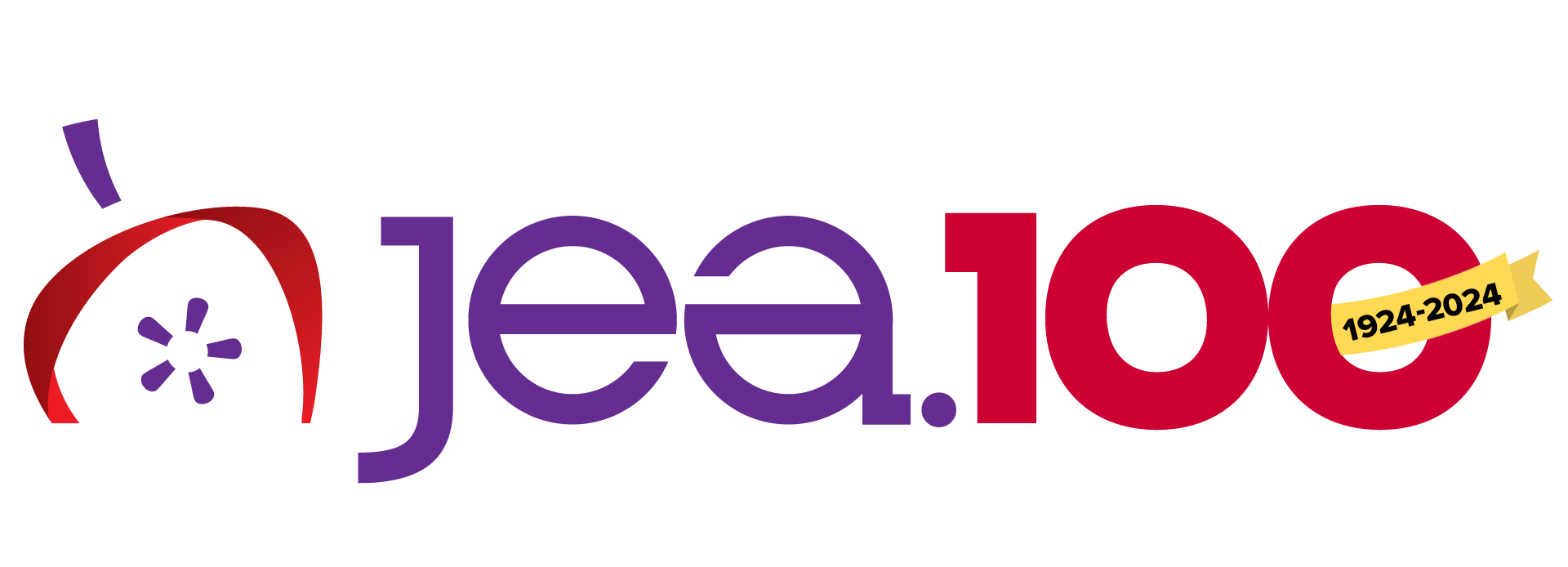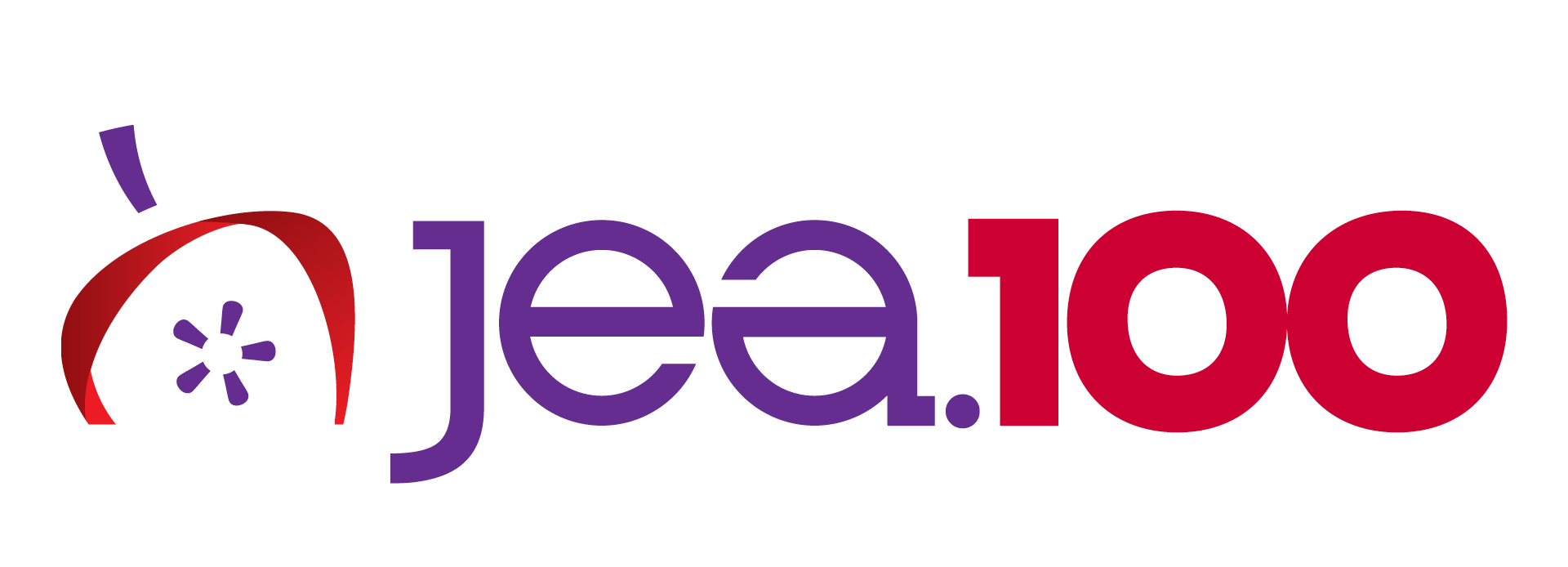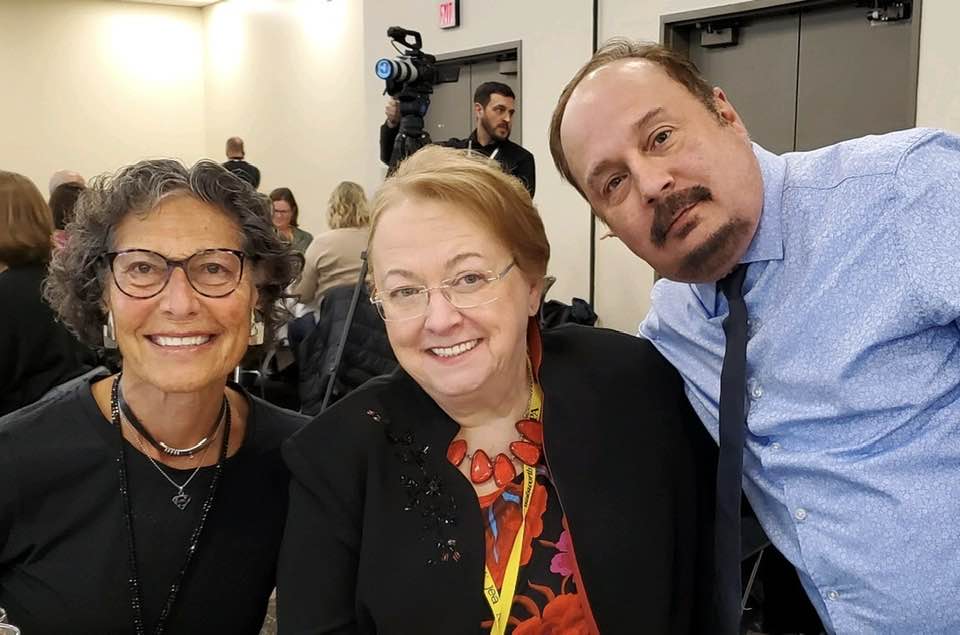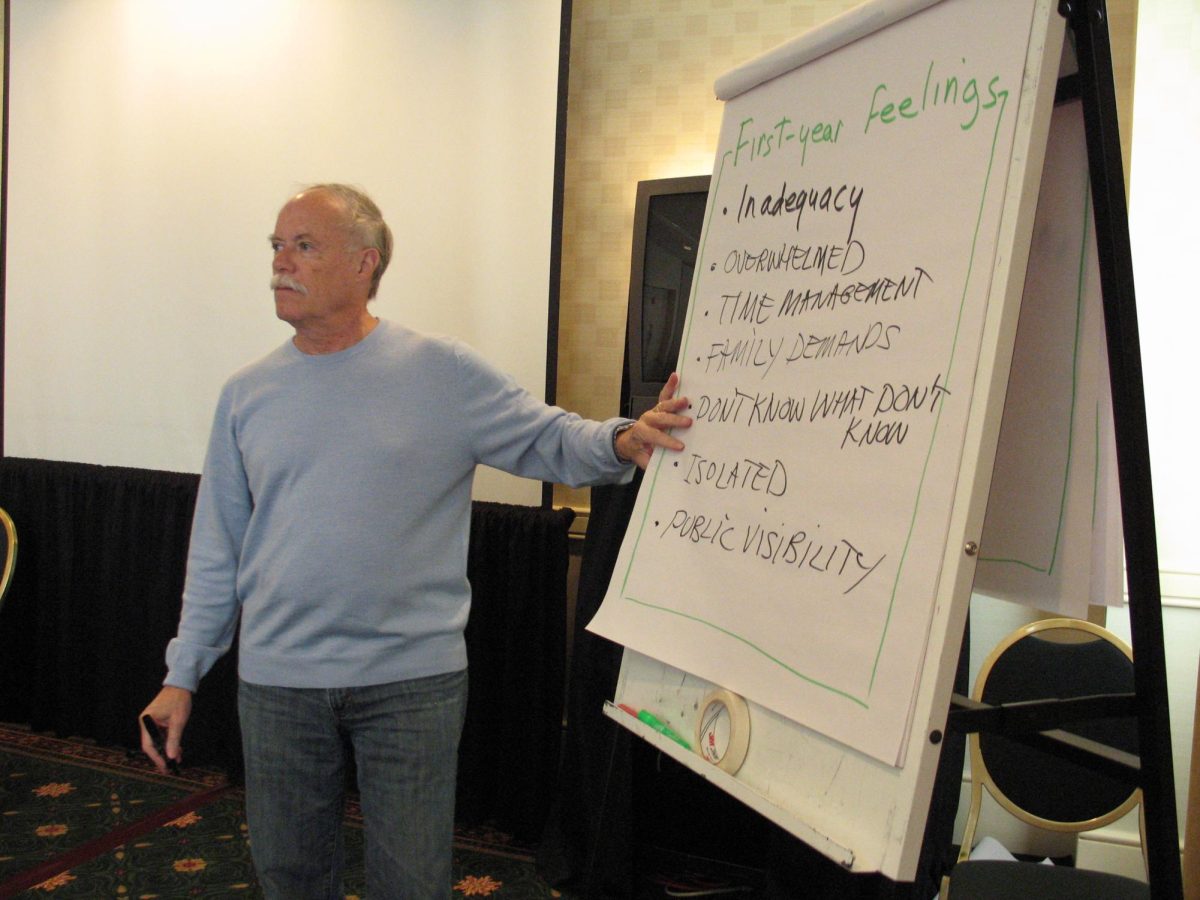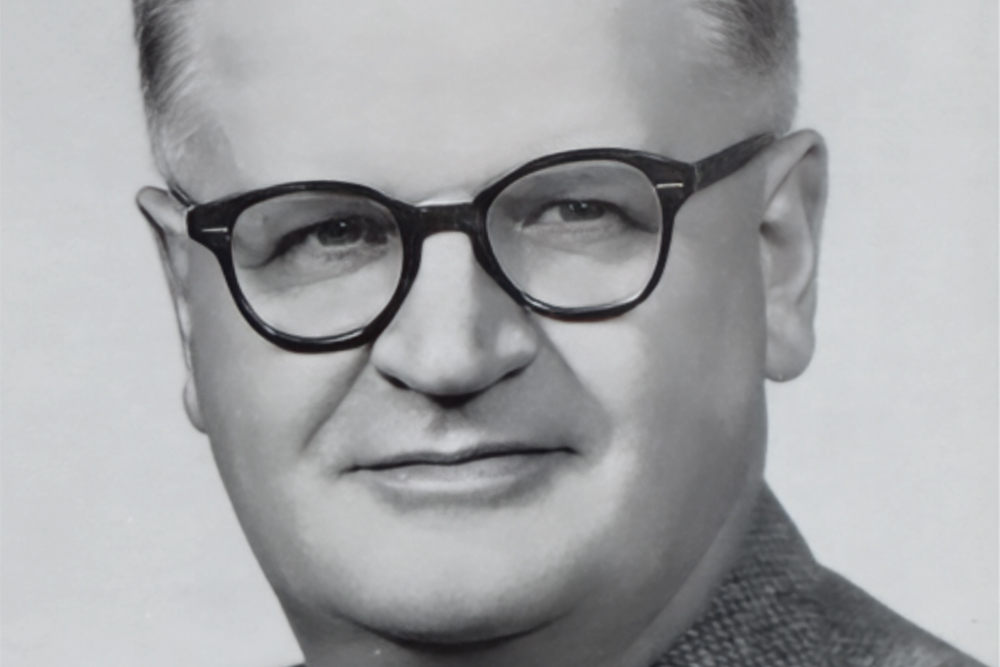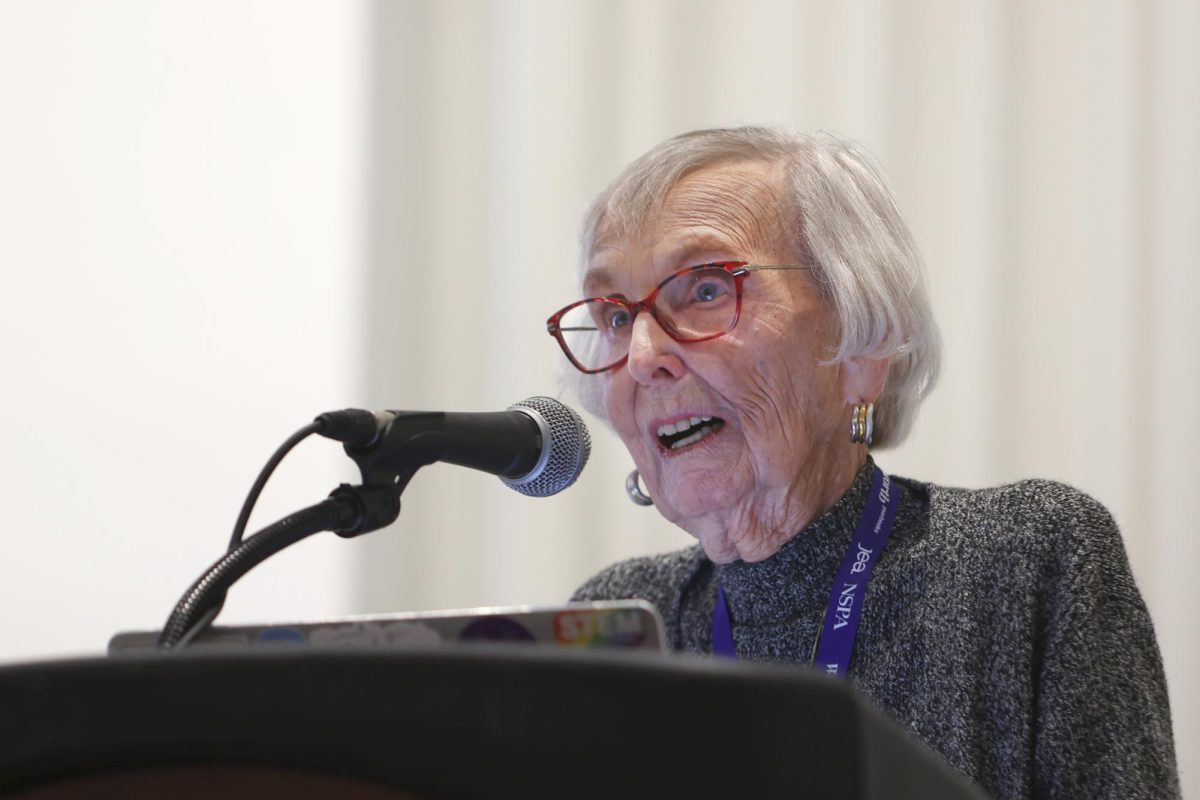Being first is nothing new for Tom Eveslage, 1989 Carl Towley award winner.
His interest in teaching came naturally from his father, a high school principal, and his mother who was a teacher. In 1967, during his second year teaching and advising the newspaper at Mounds View (Minnesota) High School, he discovered JEA. That year he signed on as the first JEA Lifetime Member.
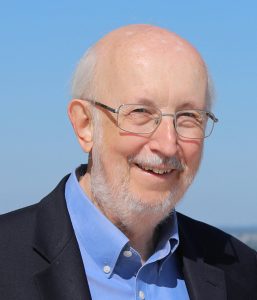
“With a $5,400 annual teaching salary, that $200 to JEA was a big financial commitment,” Eveslage said. “But 57 years later, at about $3.50 a year, it has been quite a good investment.”
The first student press article he wrote for Quill and Scroll magazine was titled “Does Your Newspaper have an Insurance Policy?” That article, about the importance of having an editorial policy, defined the law-and-ethics focus of his career.
At the University of Minnesota, where he received his Master’s in journalism, he met then-doctoral student Robert Trager, the first in the country to write a law-review article about the student press. Eveslage said Trager’s articles convinced him he wanted a Ph.D. relating to student journalism and free-speech rights.
So, he left a job at St. Cloud (Minnesota) State College to study with Trager at Southern Illinois University and earn his Ph.D. He remained focused on student press law and ethics at Temple University, where he taught from 1981 until he retired in 2013.
The first JEA/NSPA convention he attended was in 1967 in Chicago. He remembers the convention well, not only because of the sessions he attended, but for personal reasons.
“Sonja, my wife, was pregnant. The baby wasn’t due for a couple of weeks,” he said, “but she gave birth to my first son while I was on the train home from the convention.”
For Eveslage, life was changing—both personally and professionally. “A lot of things were happening to alter the landscape of student journalism,” he said. “The Tinker decision came down in 1969 and that emphasized the need for constitutional policies to protect student freedom of expression.”
It was then that Eveslage joined JEA’s Scholastic Press Rights Commission and the board of the Student Press Law Center to help in the fight for student freedom of expression. He also was on the JEA Commission that set the criteria for the organization’s CJE and MJE Certification program. Colleagues he worked with describe him as generous.
“Tom Eveslage is known as one who gives – of himself through his expertise in academic journalism, law and ethics; of his leadership, dedication and innovation through his work in the growth and effectiveness of The Student Press Law Center and of himself through his support, assistance and belief he shares with students,” John Bowen, SPRC chair for decades, said.
“I’ve worked with Tom for nearly 40 years, at the SPLC, on JEA’s Scholastic Press Rights Commission/Committee and various other projects, all for the benefit of students, advisers and communities appreciating the richness and need for free expression if democracy is to succeed.”
Eveslage carried his passion for student press freedom to the board of the Pennsylvania School Press Association, where Jane Blystone, PSPA president and 2022 Carl Towley award recipient, described him as “a fierce advocate for press freedom.”
Eveslage’s generosity and passion may well be fueled by his own teaching experience and years of observing high school journalism teachers.
“The two hardest things for a journalism teacher are lack of journalism training and being so alone in their school,” Eveslage said. “Only a fraction of advisers have had journalism coursework, and advising is hard work made more difficult by lack of training. And there usually is no other teacher in the school like them. Coaches have other coaches for support but, in most cases, there is not a support group for journalism advisers. That’s why JEA is so important. Interest groups can form, training can happen and confidence can blossom from what happens at conventions.”
Eveslage’s interest in teacher training prompted him to instigate JEA’s first endowment to recognize the Adviser First Amendment Leadership Award.
“Tom and his wife, Sonja, suggested Candace and I create an award for journalism teachers and advisers,” Bowen said. “His suggestion is indicative of his leadership and dedication.”
Because of the partnership between the Bowens and Eveslage, JEA members will be able to apply for a $1,000 award given annually in recognition of their work to actively support, defend and fight for student journalists and their advisers on a local, state or national level.
In addition to the $35,000 endowment from the Bowens and Eveslage for the Adviser First Amendment Award, Eveslage endowed the Free Speech Advocacy Award at Temple University and another endowment to support the salaries of the students working for Temple News.
In his perfect world, Eveslage said JEA’s reach would be deeper into the rural and urban schools, students would be encouraged to be curious and tolerant of others’ ideas and would understand they are doing valuable work on behalf of all students and the school.
“We need to remember student journalists are really doing important things,” Eveslage said. “Advisers need help protecting their students’ free speech rights. That’s why a publication policy that comes from the students who are guided by the adviser and is presented to school officials is so important. The process builds a strong foundation for a life that appreciates and reflects American citizenship.”
